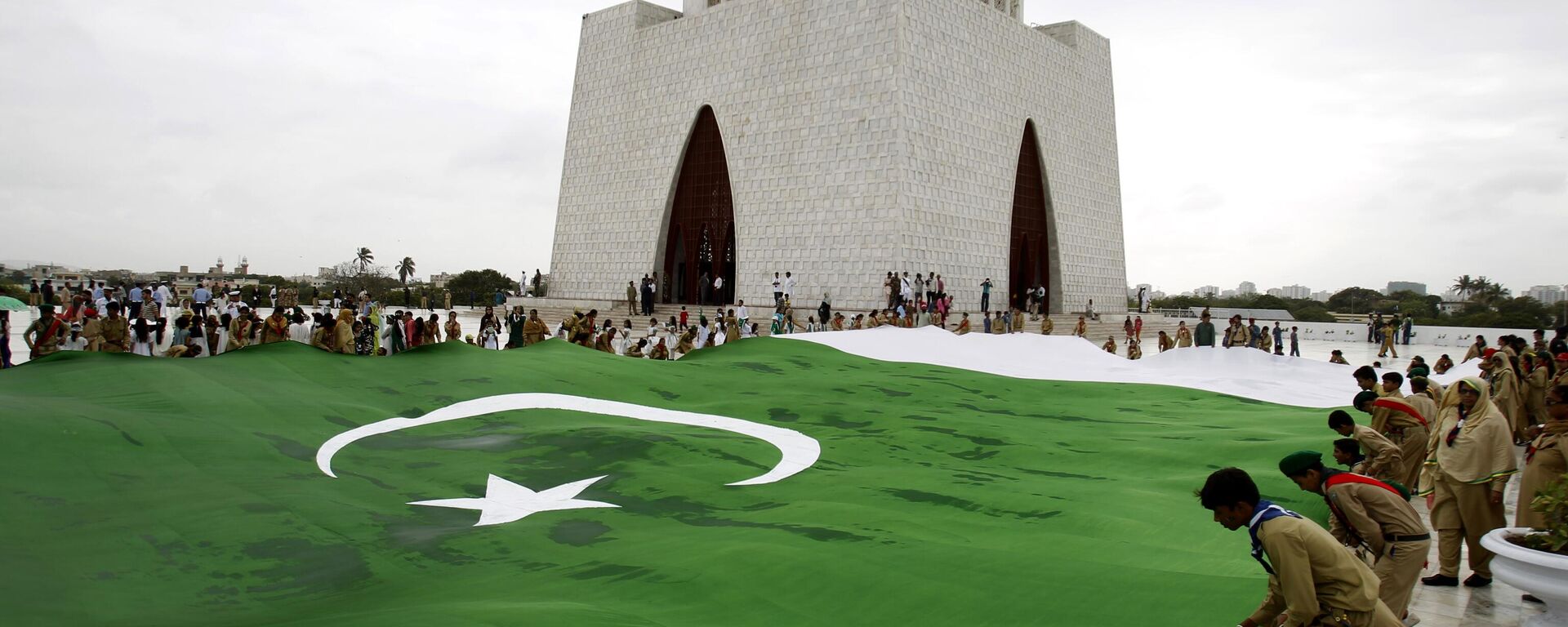Pakistan's Remarkable Performance in Exporting Narrows Trade Deficit
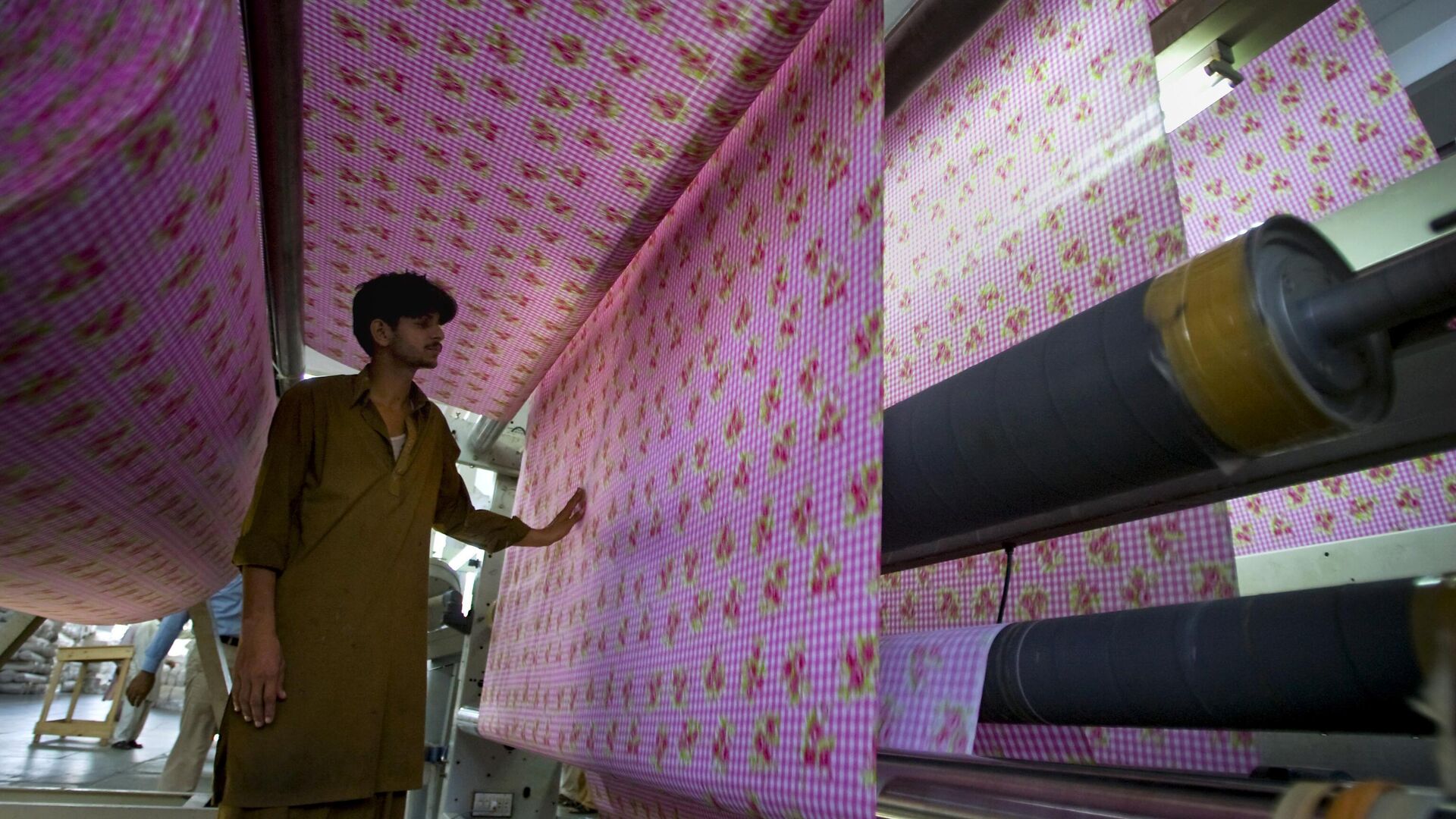
© AP Photo / Anjum Naveed
Subscribe
Pakistan achieved notable milestone in its exporting performance last month amid the growing influence of the Special Investment Facilitation Council (SIFC) in the country.
In a recent press release Pakistan's Ministry of Commerce announced that in December 2023 the country's exports increased by 22.2% to $2.812 billion from $2.301 billion in the same period last year.
According to the minister of commerce Dr. Gohar Ijaz exports had increased by 9.3% showing significant achievements in Pakistan’s trade sector. The minister was reported as saying that the positive trade figures and upwards trend showcases Pakistan’s resilience.
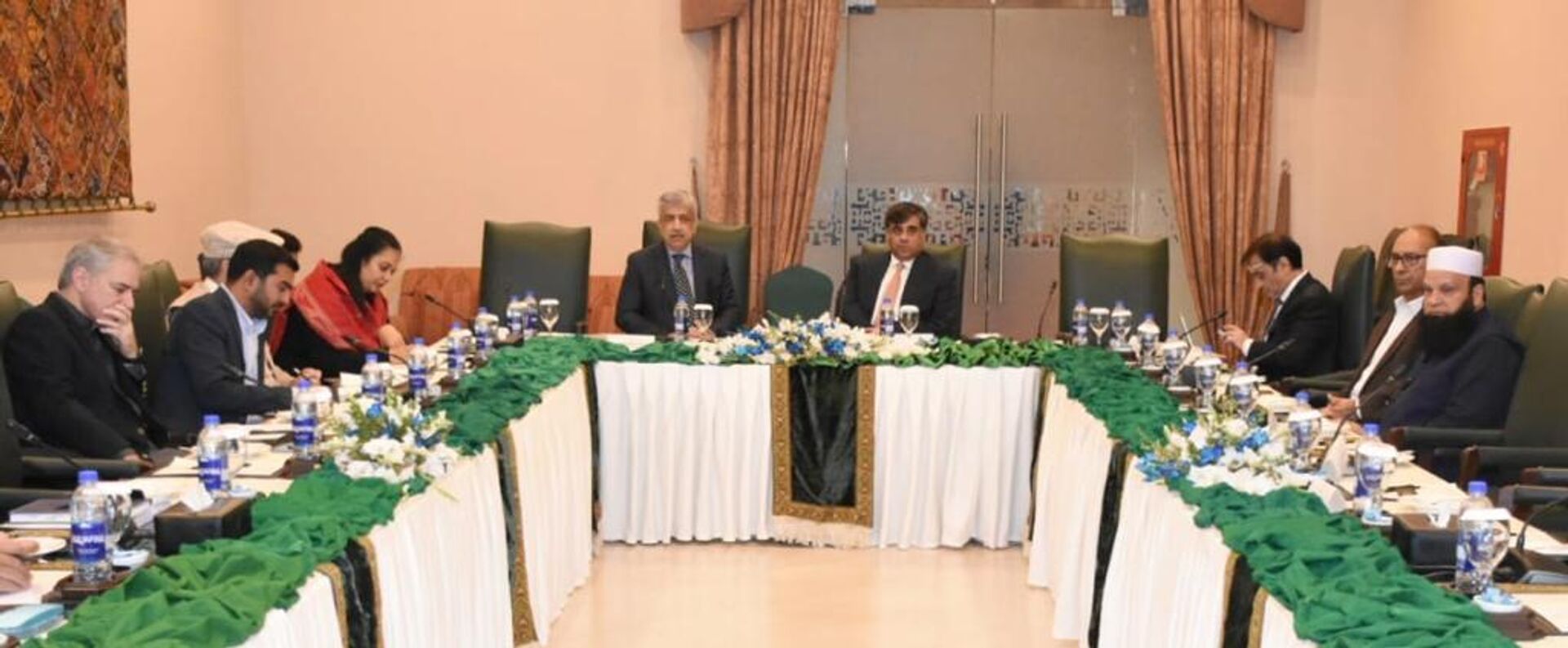
Industrial Advisory Council meeting in Islamabad, Pakistan
© Pakistan's Ministry of Commerce
Meanwhile, the trend for imports had also been positive as it decreased by 12.25% to $4.514 billion compared to $5.144 billion in December 2022.
According to the ministry these developments translate to a substantial narrowing of the trade deficit, as in just December alone, the deficit shrank by a significant 40% to $1.7 billion, representing a decrease of $1.141 billion compared to the previous year.
"The Jul-Dec 2023 period saw an even more impressive trend, with the trade deficit shrinking by 34% to $11.148 billion, down from $16.965 billion in the same period last year - a decrease of $5.817 billion," the press release stated.
Which Sectors Performed the Best?
Sputnik India reached out to a Lahore based businessman and political observer, Waqas Khan, who said that Pakistan is known for its agricultural exports, food exports, and textile and manufacturing sector.
Notably, the agricultural and food exports witnessed an extraordinary 109.2% year-on-year increase, totaling $574.6 million in the first 20 days of December 2023. This surge can be attributed to robust performances in maize, corn, alcohol, tobacco, and rice exports.
"It is definitely a promising dynamic that Pakistan has seen a surge in its exports. The quality of our cotton and also food products, especially rice and corn, is excellent and has always been a source of pride for Pakistan's export business," Khan said.
Similarly, the textile sector, manufacturing and engineering sector demonstrated a commendable 15% year-on-year increase in exports during the first 20 days of December 2023.
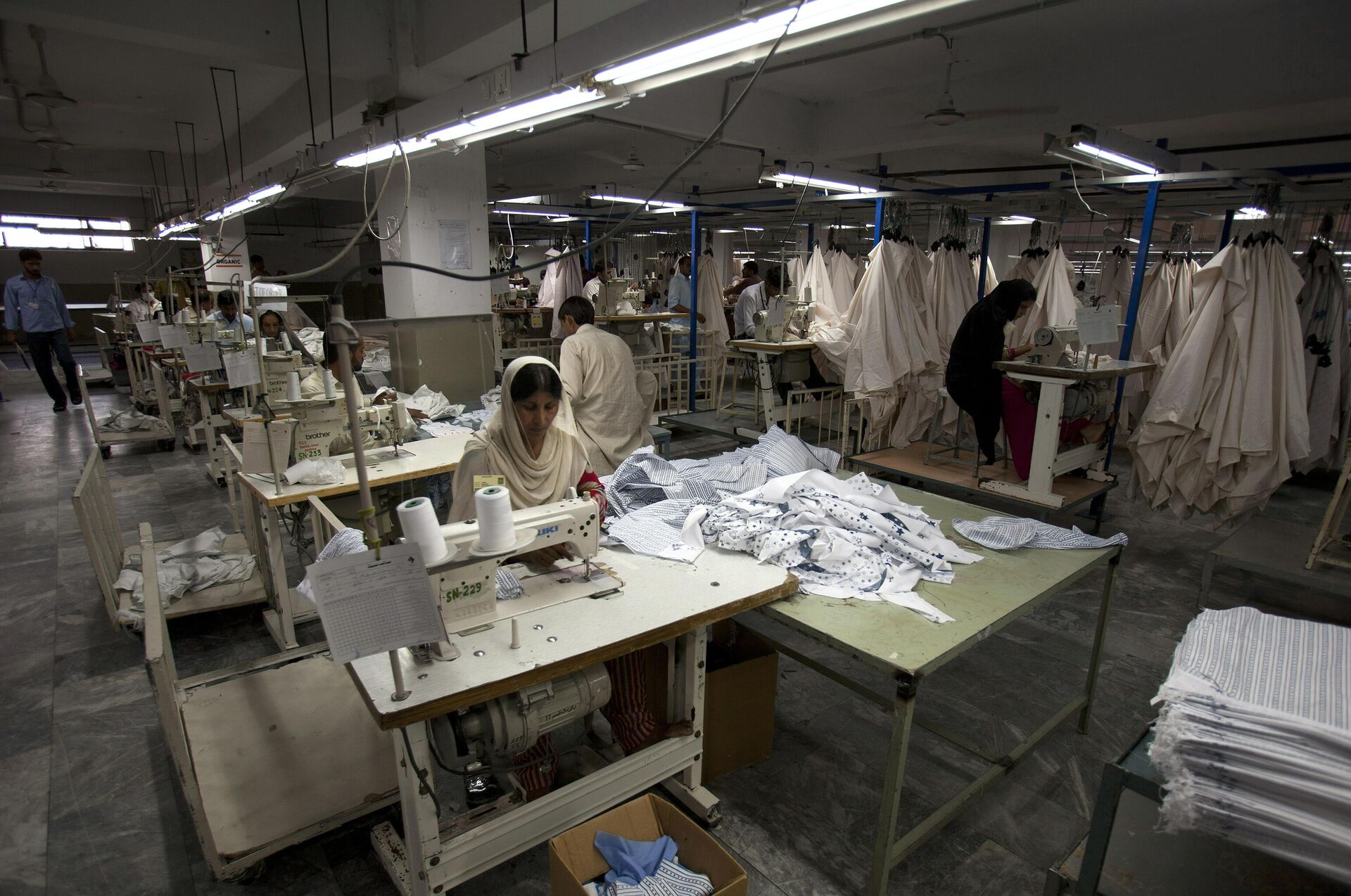
Employees work at a textile factory
© AP Photo / B.K. Bangash
Talking about top export destinations, Khan said that Pakistan's exports witnessed significant growth to key destinations, including Indonesia, United Arab Emirates, Madagascar, and China.
Cause for Optimism
Commenting on the trade achievements, minister Dr. Gohar Ejaz expressed optimism, stating that this is the record growth in the past four months.
"When the caretaker government took over, last month’s exports were $2.07 billion, now they stand at $2.81 billion. Pakistan's exports have recovered and are on a clear upward trajectory, reaching an impressive $2.8 billion in December 2023," the minister said.
He further explained that the aim is to reach a targeted capacity of $3 billion per month soon.
"Our ultimate goal remains achieving export-led growth to the tune of $8 billion per month, a target that we will pursue through the implementation of the new Industry Policy under the SIFC framework," Dr. Gohar Ijaz stated.
What is the SIFC Framework?
The Special Investment Facilitation Council (SIFC) was created with the support of the Pakistan Army during the rule of a coalition party of 16 political parties called Pakistan Democratic Movement (PDM) last year. The purpose of the SIFC was to facilitate foreign investors by addressing hurdles and bureaucratic red tape.
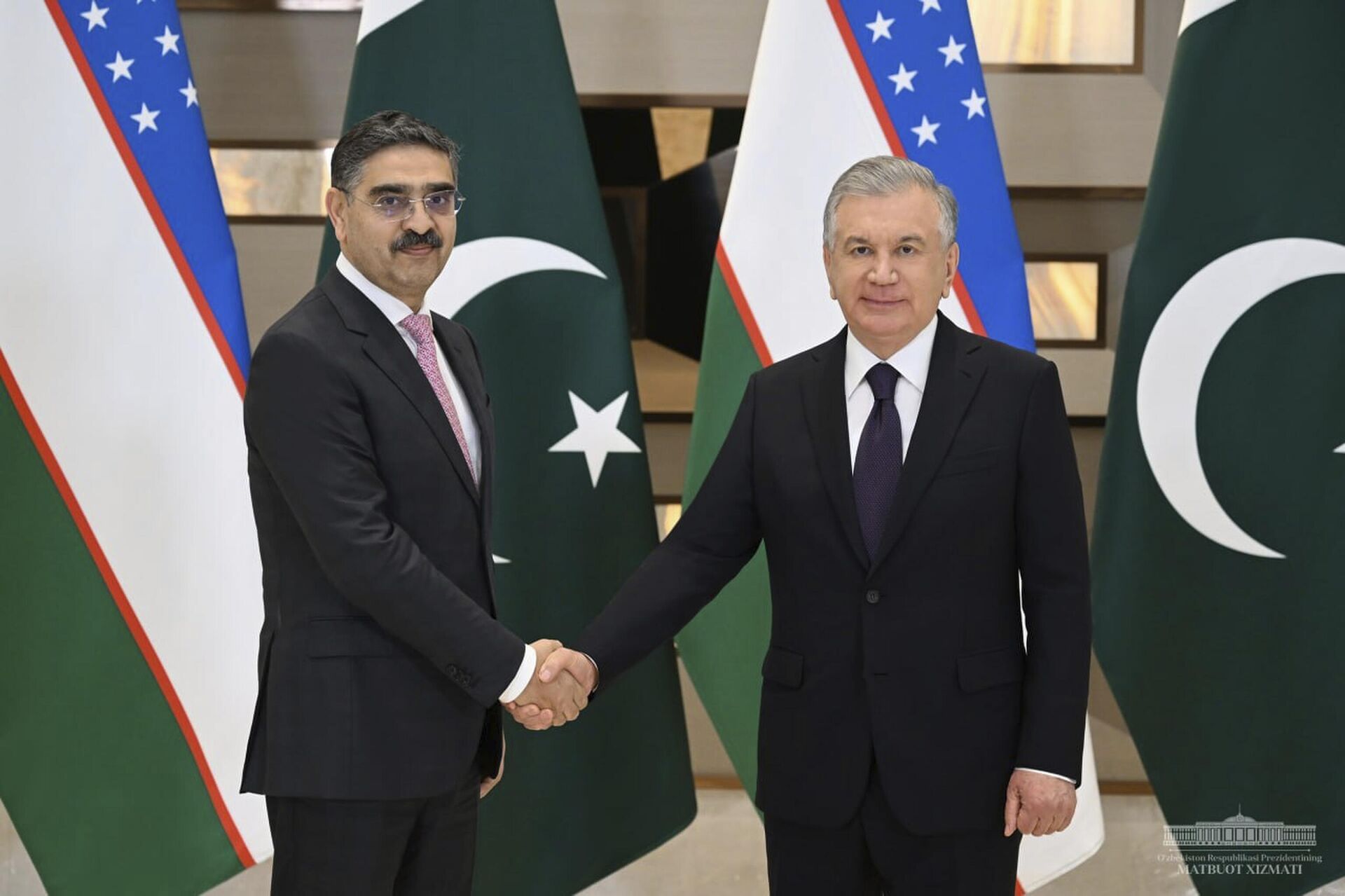
Uzbekistan's President Shavkat Mirziyoyev, right, and Pakistan's interim Prime Minister Anwaar-ul-Haq Kakar
© AP Photo / Uzbekistan's President Press Office via AP
Just last week the Special Investment Facilitation Council (SIFC) played a major role and finalized a detailed investment framework for Saudi Arabia's investment in Pakistan in consultation with Saudi authorities.
According to the information provided by the SIFC, Pakistan expects around $25 billion in investment from Saudi Arabia. It is also anticipating large investment from the UAE, Kuwait and Qatar.
"Pakistan needs to work harder on creating an investment-friendly environment in the country so that more foreign investment comes in this year. Foreign investors usually want provisions relating to international security to their investment," the businessman told Sputnik.
Nevertheless, in the latest press release the ministry of commerce stated that it remains committed to strengthening Pakistan's export potential and creating a conducive environment for sustainable economic growth.
"These positive developments are a testament to the government's ongoing efforts and the resilience of Pakistani businesses," Dr. Gohar Ejaz said.

